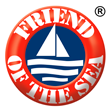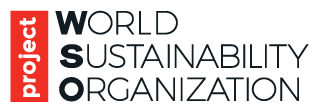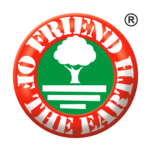The Friend of the Sea logo gains worldwide market visibility as salmon from British Columbia can now display the sustainability label, adding up to the list of products already certified by Friend of the Sea.
Conformance of the BC Salmon fishery to Friend of the Sea strict sustainability criteria is based on updated official scientific data, collected and analysed by the regional fishery bodies. According to that objective data, some of the BC salmon stocks are deemed fished at sustainable levels (full list available at www.friendofthesea.org). Only salmon sourced from those stocks can be certified as Friend of the Sea.
As far as the fishing methods, all of them comply with Friend of the Sea criteria, which require a discard level not higher than 8% (the average worldwide) and no impact on the seabed. Trolls, gillnets, seines and traps: all passed the test.
Gear, time and area are strictly regulated in one of the best managed fisheries in the world. Net size and composition as well as areas to be fished are clearly regulated. The fishery is designed to avoid stocks of concern and stock assessment using DNA samples is being conducted during the fishery. Bycatch of seabirds is closely monitored and at-sea patrols ensure compliance is being implemented.
Audit for chain of custody and compliance with regulations is run by independent third party certifiers, according to Friend of the Sea criteria and following the FAO guidelines.
Main suppliers of salmon from British Columbia have undergone chain of custody audit for Friend of the Sea certification. A main brand in Europe is already displaying the Friend of the Sea label on the shelves and others are undergoing audit.
“Consumers need to know that BC wild salmon comes from a highly regulated low impact fishery. Furthermore, Friend of the Sea certified salmon will originate only from stocks not overexploited.” says Dr Bray, Director of Friend of the Sea.
“We appreciate Friend of the Sea use of available scientific data versus very strict criteria, such as the requirement of no impact on the seabed and low discard level” states Mr Grant Snell, General Manager of BC Salmon Marketing Council “the whole assessment becomes more objective, fair and verifiable.”
Friend of the Sea is a project for certification and promotion of seafood from sustainable fisheries and aquaculture, already used by some of the main retail chains in the world, such as Carrefour and Coop Italy, Eroski and Manor and producers of tuna, sardines, anchovies, farmed cod, salmon, trout, seabream, mussels, octopus and many more.
SUSTAINABLE BC SALMON STOCKS
Chinook salmon (Oncorhynchus tshawytscha)
Northeast Pacific (FAO Statistical Area 67):
Canada: Late summer – South Thompson, Fall – lower Fraser natural, Fall – lower Fraser hatchery, Summer – lower fraser, WCVI-hatchery, Georgia Strai Fall (large hatchery operations), Ara 7-8, Nass, QCI, Skeena, Stikine, Taku, Yukon
Chum (=Keta= Dog) salmon (Oncorhynchus keta)
Northeast Pacific (FAO Statistical Area 67):
Canada: Fraser River, WCVI, Johnstone Strait area and mainland inlets (Area-11-12), Georgia Strait, Area-7-10, Yukon
Coho salmon (Oncorhynchus kisutch)
Northeast Pacific (FAO Statistical Area 67):
Canada: Area-3, QCI-E, QCI-N, QCI-W, Skeena, Stikine, Taku
Pink(=Humpback)salmon (Oncorhynchus gorbuscha)
Northeast Pacific (FAO Statistical Area 67):
Canada: Fraser-Odd, Georgia Strait-west, Area-7/10 Odd, North Coast, Areas-3/6 Odd
Sockeye (=Red) salmon (Oncorhynchus nerka)
Northeast Pacific (FAO Statistical Area 67):
Canada: Early Summer – North Thompson, Early Summer – South Thompson, early Summer – lower Fraser, Summer – Chilko, Summer – Nechako, Summer -Quesnel, fall – South Thimpson, Fall – Birkenhead, Fall – lower Fraser, Babine Lake enhanced, Stikine-wild, Taku-wild
For More information:
Grant Snell
General Manager
BC Salmon Marketing Council
Phone: (604) 267-3030 or email grant@bcsalmon.ca
—–
FRIEND OF THE SEA is the only certification international certification scheme compliant with FAO Guidelines for certification of sustainable fisheries. Other schemes have certified fisheries overexploited and with high habitat impact, thus not respecting FAO minimum requisites. Friend of the Sea is also the only scheme in the world which, with the same logo, certifies seafood from sustainable fisheries and sustainable aquaculture. Friend of the Sea standards’ compliance is verified by third party certification bodies. Standards are the strictest and require products to originate only from not overexploited stocks and by selective (maximum 8% discard) fishing methods which do not impact the seabed. Several main retail chains and producers worldwide have joined Friend of the Sea, being the most viable, practical and verifiable scheme.
FRIEND OF THE SEA is the only certification international certification scheme compliant with FAO Guidelines for certification of sustainable fisheries. Other schemes have certified fisheries overexploited and with high habitat impact, thus not respecting FAO minimum requisites. Friend of the Sea is also the only scheme in the world which, with the same logo, certifies seafood from sustainable fisheries and sustainable aquaculture. Friend of the Sea standards’ compliance is verified by third party certification bodies. Standards are the strictest and require products to originate only from not overexploited stocks and by selective (maximum 8% discard) fishing methods which do not impact the seabed. Several main retail chains and producers worldwide have joined Friend of the Sea, being the most viable, practical and verifiable scheme.
For more information on Friend of the Sea
Paolo Bray
Director
www.friendofthesea.org
info@friendofthesea.org
Skype: friend.of.the.sea
HQ (EU): Tel: +39.348.5650306
Fax: +39.02.29537094
United States: Tel: 001.617.418-3491 (EC)
United States: Tel: 001.415.508.5293 (WC)
UK: Tel: 0044.020 7193 4146
Paolo Bray
Director
www.friendofthesea.org
info@friendofthesea.org
Skype: friend.of.the.sea
HQ (EU): Tel: +39.348.5650306
Fax: +39.02.29537094
United States: Tel: 001.617.418-3491 (EC)
United States: Tel: 001.415.508.5293 (WC)
UK: Tel: 0044.020 7193 4146



